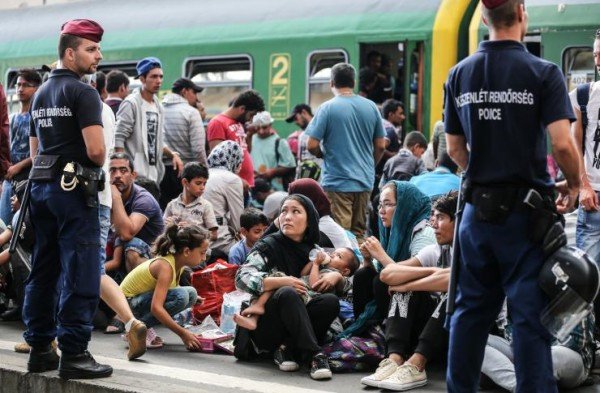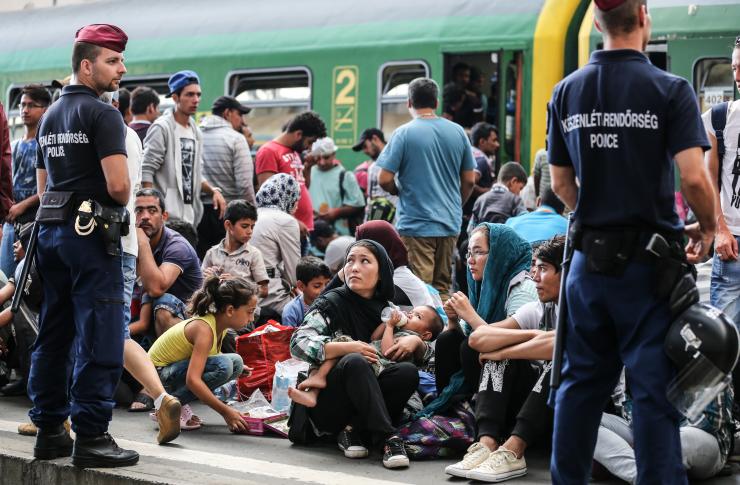The foreign ministers of Hungary, Poland, the Czech Republic and Slovakia are to meet their counterpart from Germany and current EU presidency holder Luxembourg, amid a growing row over refugee quotas.
The Central European countries – the so-called Visegrad-four – reject quotas proposed by the EU Commission and backed by Germany.
The talks in Prague are expected to focus on this issue.
The European Commission wants 120,000 additional asylum seekers per year to be shared out between 28 EU members.
This would be a sharp increase from the current 40,000.

In recent weeks, tens of thousands of migrants have been desperately trying to flee conflicts in countries like Syria and Libya. Many of them travel through Hungary to Germany, Austria and Sweden – wealthier EU nations with more liberal asylum laws.
The Central European nations have all rejected the proposed compulsory quotas.
This is despite the fact that each of them would take in far fewer refugees than Germany if the EU backs the proposals.
Ahead of the Prague meeting, the Czech Foreign Ministry said it was aimed at improving “better mutual understanding among EU member states… [in light of] some differing views”.
Hungary in particular has become a key point on the journey north for the migrants, with more than 150,000 people arriving this year.
On September 9, the Hungarian army started military exercises to prepare for a possible future role in guarding the border and stemming the flow of people – a move criticized by human rights groups.
A new razor-wire barrier is also being built along Hungary’s border with Serbia.
The authorities in Hungary have been told to expect 40,000 more migrants by next week.
https://www.youtube.com/watch?v=qdyjpPiMV6o
